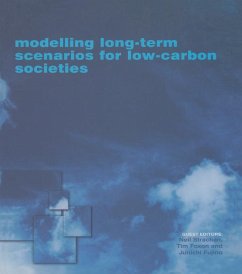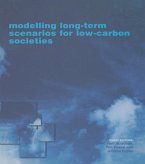With the ever-increasing impacts of climate change, it is now clear that global society will have to restructure its energy systems in order to decrease carbon emissions. The scenarios under which this transition to low-carbon societies (LCS) could occur would have complex economic, technological, behavioural and policy implications.
This volume, a supplement to the Climate Policy journal, considers these implications by examining different low-carbon scenarios for different countries, modelled at different scales and typologies. Two overview chapters, co-written by international experts, set the context of scenario development and quantification of LCS, and summarize the findings on the economic implications, societal responses, technological developments and required policy measures to enable LCS across a range of countries. Further chapters detail the modelling of various scenarios and outline the model methodology, detail the economic and technological consequences of transitions to LCS, and comment on the strengths and weaknesses of specific policies.
This volume, a supplement to the Climate Policy journal, considers these implications by examining different low-carbon scenarios for different countries, modelled at different scales and typologies. Two overview chapters, co-written by international experts, set the context of scenario development and quantification of LCS, and summarize the findings on the economic implications, societal responses, technological developments and required policy measures to enable LCS across a range of countries. Further chapters detail the modelling of various scenarios and outline the model methodology, detail the economic and technological consequences of transitions to LCS, and comment on the strengths and weaknesses of specific policies.
Dieser Download kann aus rechtlichen Gründen nur mit Rechnungsadresse in A, B, BG, CY, CZ, D, DK, EW, E, FIN, F, GR, HR, H, IRL, I, LT, L, LR, M, NL, PL, P, R, S, SLO, SK ausgeliefert werden.









